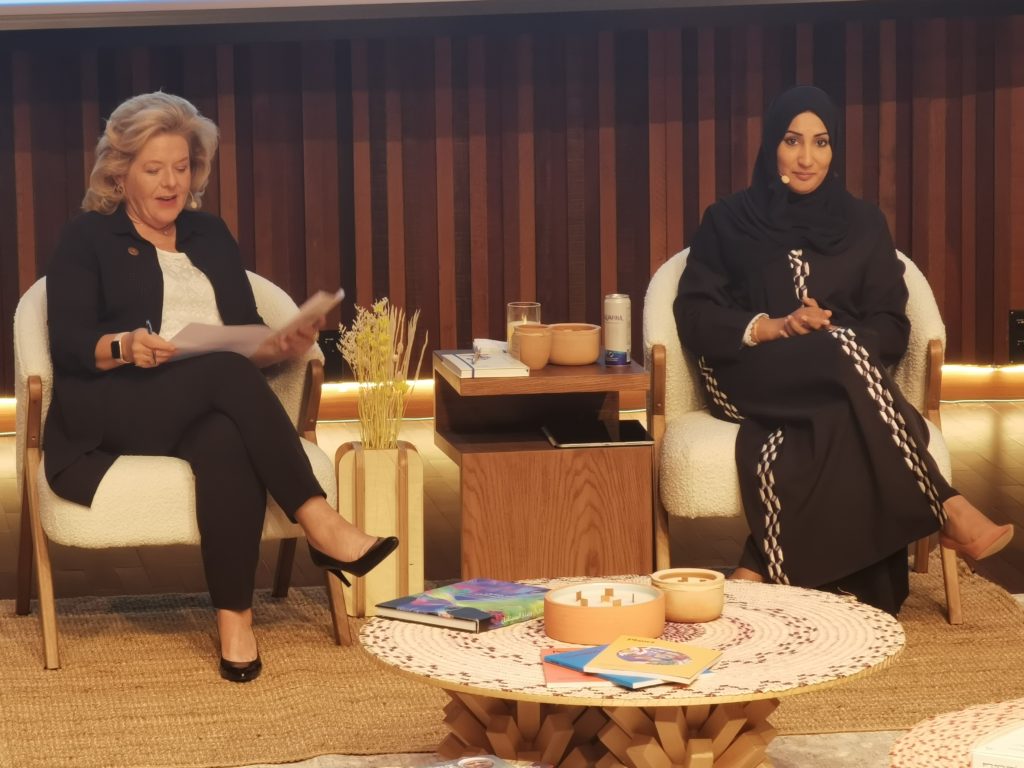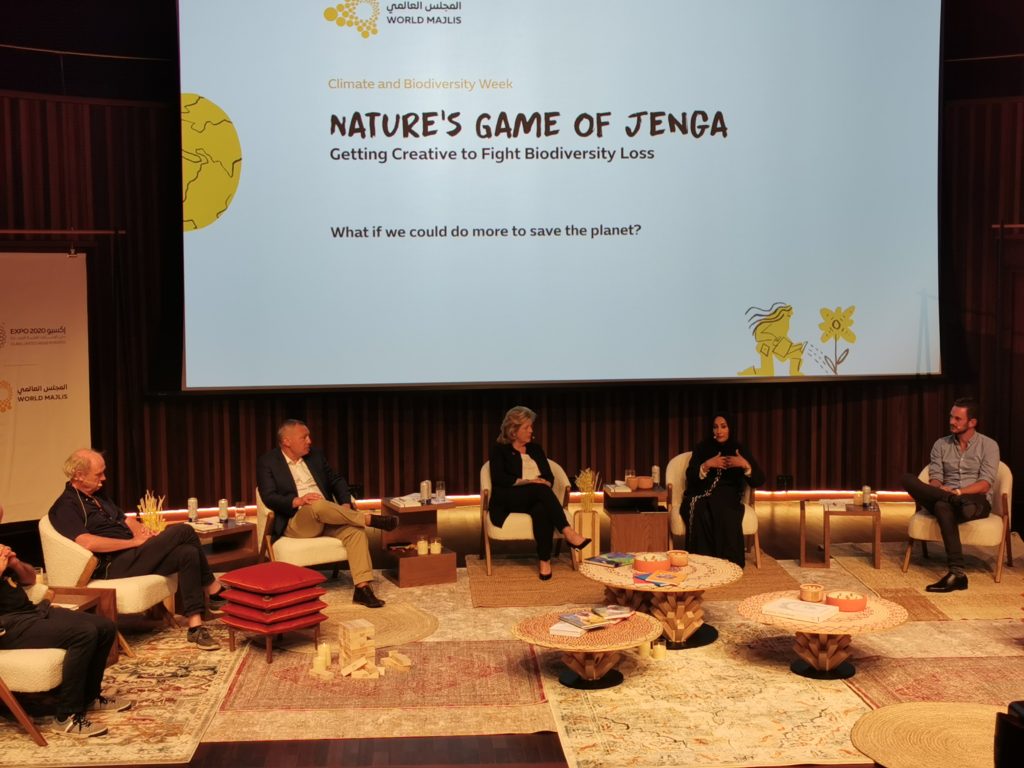Secretary General Of Environment Agency – Abu Dhabi Stresses How The Loss Of Biodiversity Can Disrupt The Services That Ecosystems Supply To Humanity

During a panel discussion at the Sustainability Pavilion at Expo 2020, as part of the World Majlis Climate Change Week, yesterday the Secretary General of the Environment Agency – Abu Dhabi (EAD), Her Excellency Dr Shaikha Salem Al Dhaheri, stressed on the importance of conserving biodiversity to help maintain the balance of natural ecosystems.
Her Excellency highlighted how biodiversity is fundamental to the resilience of ecosystems and is the glue holding them together. When we lose biodiversity, we therefore disrupt the services that ecosystems supply to humanity.
She said: “Nature is a complex web, and its remarkably diverse ecosystems make it possible for human beings to live on earth through the ecosystem services that they provide. Nature provides clean water, regulates disease and climate, supports crop pollination and soil formation, and most importantly feeds our bodies and our souls, giving us nourishment, recreation, medicine, even spirituality. Therefore, it is vital for us to always preserve nature and biodiversity for mankind to prosper.
As we encroach more on our natural habitats, we are not getting closer to them, we are actually growing more disconnected from nature. Because of human activity, close to one million animal and plant species could soon go extinct, leading to a chain of unpredictable consequences. Nature’s responses to our growing intrusions are now affecting entire communities at an unprecedented scale and frequency, from wildfires to global pandemics and insect invasions.”
She added: “Without biodiversity, we lose ecosystems and the services they provide us. We lose the bees that pollinate the crops that we eat and the plants that stabilise the soil that grows the food we eat,we also lose the protection from storm surges provided by the mangroves, and the carbon sequestration from trees that helps to moderate climate change.In short, biodiversity is absolutely critical for the survival of humanity.”
Her Excellency also discussed the importance of the Four Pillars of Sustainable Development, namely planet, people, profit and principles.
She elaborated: “There are so many distractions whizzing past our eyes on the small screens that we hold in front of us, that we forget to look up and take in the beauty of nature as it perishes around us. The rate of species extinction is now 10 000 times faster than it has been historically, mainly due to the actions of humans. It’s estimated that one species becomes extinct every five minutes.To put this into perspective, on average, people spend 144 minutes a day on social media. During that time, 28 species would have disappeared from this planet.”
Her Excellency then further elaborated on EAD’sextensive monitoring programme that includes using helicopters for certain key species, such as dugong, while also using drones for birds, as well as physically surveying a wide variety of species in the field for the conservation of biodiversity.
She added: “Recently, we have just completed a comprehensive Land Cover Land Use mapping of the whole of Abu Dhabi, using remote sensing as well as in-field surveys that allows us to identify the distribution of all habitats in the emirate. This is important as it helps us to identify the areas that need to be protected, as well as issues such as potential habitat corridors and fragmentation. We also use remote sensing satellite data, drones and AI for mapping soil quality.”
Her Excellency also explained the EAD Protected Areas Programme that seeks to identify, protect, and actively manage representative areas of habitat around Abu Dhabi.Currently, EAD has six marine protected areas, including one UNESCO Man and Biosphere Reserve, in total covering 6 780 hectares, or 13.88 %, of Abu Dhabi’s marine area, and 13 terrestrial protected areas covering 1 146 hectares, or 16.96 %, of the terrestrial area of the capital, with plans to increase this to 20 % in the near future.
EAD has also developed five conservation action plans for eight of Abu Dhabi’s threatened plant species and seven critical terrestrial habitats, including the Ghaf tree, the Dew Forest of White Saxaul trees, two native Acacia species and threatened plants on Jabal Hafit mountain.
In addition, EAD has increased production at its’ native plant nursery to 500 000 plants –in total there are now 73 species in the seed collection. EAD are also developing a new Plant Genetic Resources Centre with capacity for over 20 000 seed samples.
Furthermore, EAD has planted more than one million native flora seeds within four protected areas and have planted the highly threatened little Dwarf Palm at two separate locations within Jabal Hafit National Park.
The extremely successful programme to reintroduce the critically endangered Scimitar-Horned Oryx into Chad was recently expanded to include the Addax, Dama Gazelle and other endangered species. EAD now has over 330 Scimitar-Horned Oryx in Chad, with over 70 births in the wild and 50 translocated.





